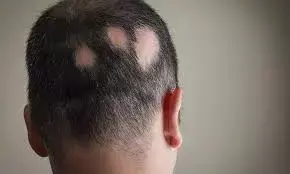- Home
- Medical news & Guidelines
- Anesthesiology
- Cardiology and CTVS
- Critical Care
- Dentistry
- Dermatology
- Diabetes and Endocrinology
- ENT
- Gastroenterology
- Medicine
- Nephrology
- Neurology
- Obstretics-Gynaecology
- Oncology
- Ophthalmology
- Orthopaedics
- Pediatrics-Neonatology
- Psychiatry
- Pulmonology
- Radiology
- Surgery
- Urology
- Laboratory Medicine
- Diet
- Nursing
- Paramedical
- Physiotherapy
- Health news
- Fact Check
- Bone Health Fact Check
- Brain Health Fact Check
- Cancer Related Fact Check
- Child Care Fact Check
- Dental and oral health fact check
- Diabetes and metabolic health fact check
- Diet and Nutrition Fact Check
- Eye and ENT Care Fact Check
- Fitness fact check
- Gut health fact check
- Heart health fact check
- Kidney health fact check
- Medical education fact check
- Men's health fact check
- Respiratory fact check
- Skin and hair care fact check
- Vaccine and Immunization fact check
- Women's health fact check
- AYUSH
- State News
- Andaman and Nicobar Islands
- Andhra Pradesh
- Arunachal Pradesh
- Assam
- Bihar
- Chandigarh
- Chattisgarh
- Dadra and Nagar Haveli
- Daman and Diu
- Delhi
- Goa
- Gujarat
- Haryana
- Himachal Pradesh
- Jammu & Kashmir
- Jharkhand
- Karnataka
- Kerala
- Ladakh
- Lakshadweep
- Madhya Pradesh
- Maharashtra
- Manipur
- Meghalaya
- Mizoram
- Nagaland
- Odisha
- Puducherry
- Punjab
- Rajasthan
- Sikkim
- Tamil Nadu
- Telangana
- Tripura
- Uttar Pradesh
- Uttrakhand
- West Bengal
- Medical Education
- Industry
Azathioprine Proves Effective for Severe Alopecia Areata: Study

Researchers have found in a recent analysis that azathioprine, used as a monotherapy, demonstrated significant efficacy and safety in treating recalcitrant and severe alopecia areata. Over a 10-year period, patients experienced a mean hair regrowth of 92.69%, positioning azathioprine as a promising systemic treatment option for this challenging condition.
Alopecia areata is an autoimmune disease in which T cells may play a key role in its pathogenesis. Various immunosuppressive drugs have been employed with varying degrees of success.
This study aimed to evaluate the long-term efficacy and safety of azathioprine as a systemic monotherapy for moderate to severe alopecia areata. A total of 63 patients (27 females [42.9%] and 36 males [57.1%]) with a minimum 6-month history of alopecia areata were included. The extent of scalp hair regrowth was assessed during the treatment and annually for up to 10 years using the Severity of Alopecia Tool (SALT score). The primary endpoint was the percent change in SALT score during treatment.
The daily dosage of azathioprine was calculated at 2 mg/kg of body weight. Results: The mean duration of the current episode of scalp hair loss was 34.10 months (±39.16). The mean percentage of hair regrowth was 92.69% (±9.08). The mean percentage of hair loss decreased from 74.2% (±27.8) before treatment to 5.2% (±8.6) after 10 years of azathioprine treatment, indicating a highly significant statistical improvement (Paired t-test, 95% CI = 55.9–75.3). The mean hair loss score (S0–S5) improved from 5.56 (±1.3) before treatment to 0.67 (±0.53) after 10 years of treatment, showing a significant difference from the baseline score (Wilcoxon signed-rank test, p < 0.0001). This study demonstrates that azathioprine is a safe and effective systemic therapy for the treatment of recalcitrant and severe alopecia areata.
Reference:
Farshi, S. and Mansouri, P. (2025), Efficacy and Safety of Long-Term Azathioprine Therapy for Severe Alopecia Areata: A 10-Year Cohort Study. J Cosmet Dermatol, 24: e70187. https://doi.org/10.1111/jocd.70187
Dr. Shravani Dali has completed her BDS from Pravara institute of medical sciences, loni. Following which she extensively worked in the healthcare sector for 2+ years. She has been actively involved in writing blogs in field of health and wellness. Currently she is pursuing her Masters of public health-health administration from Tata institute of social sciences. She can be contacted at editorial@medicaldialogues.in.
Dr Kamal Kant Kohli-MBBS, DTCD- a chest specialist with more than 30 years of practice and a flair for writing clinical articles, Dr Kamal Kant Kohli joined Medical Dialogues as a Chief Editor of Medical News. Besides writing articles, as an editor, he proofreads and verifies all the medical content published on Medical Dialogues including those coming from journals, studies,medical conferences,guidelines etc. Email: drkohli@medicaldialogues.in. Contact no. 011-43720751


